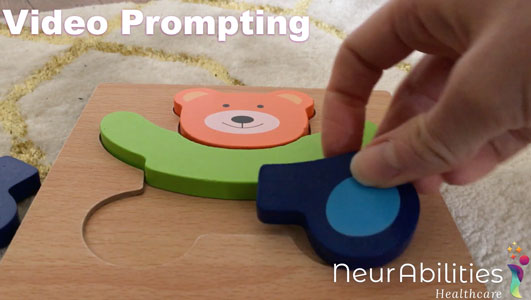Courtesy of:
Kathleen Stengel, BCBA,LBA
CEO of NeurAbilities
Kaori Nepo, PhD, BCBA-D
Director of Behavior Services PA Region
At NeurAbilities, we have a long history of implementing evidence-based practices and cutting edge protocols for our very unique neurodiverse population including individuals with autism spectrum disorders (ASD). Success for our patient population is about implementing sound strategies that allow our patients and their families to contact success. Many of the evidence-based practices in our Applied Behavior Analysis program have included direct one-on-one in person treatment provided by highly skilled behavior technicians under the supervision of licensed and certified clinical staff. In the wake of the pandemic, however, in person therapy for many of our patients was reduced or eliminated altogether due to regulations and safety. This has necessitated our behavior analytic staff to modify some therapeutic practices to be both remote and effective with persons who may not be as trained as the technicians. That is to say, many of our patient caregivers and families are providing therapeutic interventions themselves to maintain safety.
Providing sound treatment strategies to our caregivers to reduce regression with remote clinical consultation is daunting for our parents and caregivers. It is difficult enough to be a parent but now our parents are essentially going “back to school” to be a therapist as well. While we can not control the pandemic and modality of treatment, we can control what treatment we provide and how to provide them. One evidence-based protocol that has been helpful during remote consultations and reduces the overall burden of our parents implementing treatment strategies is the use of Video Modeling. Video modeling is an evidence-based practice that is defined as using video models of a target behaviors or skills that serves as a prompt or learning tool to develop these skills. The use of Video Modeling via remote means has helped both with intervention for our patients as well as providing training for our parents and caregivers to maintain the acquired skill and/or reduce the chance of regression of skills.
There are many ways to create videos for modeling including using an instructor in a video, a peer or the learners themselves as a model. Each type of video model can be selected based on the learners’ profile as well as the skill being taught. The key is to select a specific skill that can be broken down and videoed using little to no language and to practice with the learner with much reinforcement. Skills such as communication, social interaction, daily living skills and play skills are some of the most common skills used for video modeling. Starting with a basic hand washing protocol and/or mask wearing gives parents a small target to get fluent on procedures to move to more complex skills.
Watch these video modeling examples for ideas on how to create a fun and useful tool to teach and reinforce a new skill!
For more information on these and other effective strategies for treatment, contact NeurAbilities Heatlhcare at info@neurabilities.com or call us at 856-346-0005.



